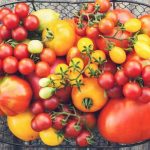Is mulch good for vegetable gardens? When it comes to maintaining a successful and thriving vegetable garden, the use of mulch plays a crucial role in promoting healthy plant growth and soil conditions.
Mulch is not only beneficial for retaining moisture and regulating soil temperature, but it also helps to control weeds and improve overall soil health. In this article, we will explore the importance of mulch in vegetable gardens, its benefits, different types of mulch, proper application techniques, common mistakes to avoid, and its impact on soil health and vegetable growth.
Using mulch in vegetable gardens offers a wide range of benefits that contribute to the overall success of your garden. From conserving water to reducing erosion and improving soil structure, mulch serves as a valuable ally in maintaining optimal growing conditions for your vegetables. Additionally, it acts as a natural barrier against weeds, allowing your plants to thrive without competing for nutrients and sunlight.
It is important to understand that not all types of mulch are suitable for vegetable gardens. Determining the right type of mulch depends on various factors such as climate, plant type, and specific garden needs. This article will delve into the different types of mulch available for vegetable gardens and provide guidance on choosing the most appropriate option based on your unique gardening requirements.
Benefits of Using Mulch in Vegetable Gardens
Using mulch in vegetable gardens offers numerous benefits that can greatly improve the health and productivity of your plants. One of the key benefits is that it helps to conserve moisture in the soil, reducing the need for frequent watering.
This is especially important during hot and dry periods, as it helps to maintain a consistent level of moisture around the roots of your vegetables. Additionally, mulch acts as a barrier, preventing soil erosion and compaction, which can be detrimental to the growth of your crops.
Another advantage of using mulch in vegetable gardens is its ability to regulate soil temperature. During extreme weather conditions, such as heatwaves or cold snaps, mulch acts as insulation, protecting the soil and plant roots from fluctuations in temperature. This is particularly important for maintaining the optimal conditions for vegetable growth and can ultimately lead to better yields.
Furthermore, mulch provides a natural source of nutrients to the soil as it decomposes over time. Organic mulches, such as straw or compost, break down and release essential minerals and organic matter into the soil, enhancing its fertility. This not only benefits the current crop but also contributes to improving the overall quality of the soil for future plantings.
| Benefit | Explanation |
|---|---|
| Moisture conservation | Mulch reduces the need for frequent watering by maintaining consistent moisture levels around plant roots. |
| Temperature regulation | Mulch acts as insulation, protecting soil and roots from extreme temperature fluctuations. |
| Nutrient contribution | Organic mulches decompose over time, releasing essential minerals and organic matter into the soil. |
Different Types of Mulch for Vegetable Gardens
When it comes to choosing the right type of mulch for your vegetable garden, there are several options to consider. Each type of mulch has its own set of characteristics and benefits, so it’s important to select the one that best fits your specific gardening needs.
Organic Mulch
One popular choice for vegetable gardens is organic mulch, which is made from natural materials such as wood chips, straw, or compost. Organic mulch not only helps retain moisture and suppress weeds, but it also breaks down over time, adding valuable nutrients to the soil.
Inorganic Mulch
In contrast to organic mulch, inorganic mulch is made from materials such as plastic or rubber. While it doesn’t contribute nutrients to the soil like organic mulch does, it is effective at suppressing weeds and conserving moisture. Inorganic mulch also has the benefit of lasting longer than organic options.
Living Mulch
Another type of mulch that can be used in vegetable gardens is living mulch, which consists of low-growing plants that cover the soil surface. Examples of living mulch include clover or creeping thyme. Living mulch not only provides the same benefits as other types of mulch but also contributes to biodiversity and can attract beneficial insects to your garden.
By understanding the different types of mulch available for vegetable gardens, you can make an informed decision about which type will best suit your garden’s specific needs and help promote healthy plant growth.
How to Properly Apply Mulch in Vegetable Gardens
Properly applying mulch in vegetable gardens is essential to maximizing its benefits and ensuring the health and productivity of your plants. There are several key steps to consider when applying mulch, including choosing the right type of mulch, preparing the soil, and distributing the mulch evenly.
Choosing the Right Type of Mulch
When it comes to choosing the right type of mulch for your vegetable garden, there are several options to consider. Organic mulches such as straw, wood chips, or compost can provide valuable nutrients to the soil as they break down. Inorganic mulches like plastic or landscape fabric can effectively control weeds and retain moisture. Consider your specific gardening needs and environmental factors when selecting a mulch type.
Preparing the Soil
Before applying mulch, it’s important to properly prepare the soil in your vegetable garden. Clear any existing weeds or debris, and ensure that the soil is moist but not waterlogged. Adding a layer of compost or organic fertilizer can also help improve soil fertility and support plant growth.
Distributing Mulch Evenly
Once you’ve chosen the right type of mulch and prepared the soil, it’s time to apply the mulch to your vegetable garden. Spread a layer of mulch around each plant, making sure to leave space around the stems to prevent rotting. Aim for a depth of 2-4 inches for most organic mulches, and adjust as needed based on weather conditions and the specific needs of your plants.
Properly applying mulch in your vegetable garden is essential for promoting healthy plant growth, conserving moisture, and preventing weed growth. Taking the time to choose the right type of mulch, prepare the soil, and distribute it evenly will help you make the most of this valuable gardening resource.
Common Mistakes to Avoid When Using Mulch in Vegetable Gardens
When using mulch in vegetable gardens, it is important to be aware of common mistakes that can negatively impact the effectiveness of the mulch and ultimately the health of your plants. By avoiding these mistakes, you can ensure that you are maximizing the benefits of using mulch in your vegetable garden.
Here are some common mistakes to avoid when using mulch in vegetable gardens:
- Using too much mulch: While it may be tempting to layer on the mulch for added protection, using too much mulch can actually suffocate your plants and prevent moisture and air from reaching their roots. A layer of 2-4 inches is typically sufficient for most vegetable plants.
- Not properly preparing the soil: Before applying mulch, it is important to prepare the soil by removing any weeds or debris and loosening the top layer. Failing to do so can result in a barrier that prevents water and nutrients from reaching the soil and plant roots.
- Choosing the wrong type of mulch: Not all types of mulch are suitable for vegetable gardens. Some types, such as dyed wood chips or treated grass clippings, can introduce harmful chemicals into the soil. It is important to choose natural, organic mulches such as straw, shredded leaves, or compost.
By avoiding these common mistakes, you can ensure that the use of mulch in your vegetable garden is beneficial for your plants’ growth and overall health.
Mulch as a Weed Control Method in Vegetable Gardens
Mulch is an effective and natural way to control weeds in vegetable gardens. By covering the soil around your plants, mulch helps to prevent weed growth by blocking sunlight and reducing the potential for weed seeds to germinate. This not only saves you time and effort spent on weeding but also helps to maintain a clean and organized garden space.
There are different types of mulch that can be used specifically for weed control in vegetable gardens. Some popular options include organic mulches such as straw, wood chips, or shredded leaves, as well as inorganic mulches like plastic or landscape fabric. Each type of mulch has its own set of pros and cons when it comes to weed suppression, so it’s important to choose the right one based on your garden’s specific needs.
To make the most out of using mulch as a weed control method in your vegetable garden, here are some key tips to keep in mind:
- Apply a thick layer of mulch (2-4 inches) to effectively suppress weeds
- Make sure the soil is free from existing weeds before applying mulch
- Regularly inspect your garden for any new weed growth and remove them promptly
By using mulch as a natural weed control method in your vegetable garden, you not only eliminate the need for harmful chemical herbicides but also create an environment that promotes healthy plant growth.
Ultimately, incorporating mulch into your gardening routine not only benefits your plants but also reduces maintenance time while providing a neat and tidy appearance to your vegetable garden.
Mulch and Soil Health
Using mulch in vegetable gardens can have a significant impact on the health of the soil, which in turn affects the growth and quality of the vegetables. One of the key benefits of using mulch is its ability to improve soil structure.
Mulch helps to prevent soil compaction, promotes better drainage, and increases the overall friability of the soil. As a result, plant roots are able to penetrate deeper into the soil, allowing for better nutrient absorption and overall healthier plants.
In addition to improving soil structure, using mulch in vegetable gardens also helps to regulate soil temperature. During hot weather, mulch acts as an insulator, keeping the soil cooler and reducing moisture evaporation. Conversely, in colder weather, mulch provides an extra layer of protection for plant roots, helping to maintain a more stable soil temperature. This is especially important for vegetable crops that are sensitive to extreme temperatures.
Furthermore, incorporating organic mulch materials into the soil can enhance its fertility. As organic mulch decomposes over time, it releases valuable nutrients into the soil, enriching it and providing essential nourishment for vegetable plants. This not only promotes healthier growth but also contributes to improved flavor and nutritional value in the harvested vegetables.
| Benefit | Description |
|---|---|
| Improved Soil Structure | Mulch prevents compaction and improves drainage |
| Temperature Regulation | Mulch acts as an insulator during hot weather and provides protection during cold weather |
| Enhanced Soil Fertility | Organic mulch decomposes over time releasing valuable nutrients into the soil |
Conclusion
In conclusion, it is evident that mulch plays a crucial role in maximizing the potential of vegetable gardens. The benefits of using mulch are numerous, including weed control, soil moisture retention, and temperature regulation. By choosing the appropriate type of mulch and applying it correctly, gardeners can significantly improve the health and productivity of their vegetable plants.
Furthermore, utilizing mulch as a weed control method not only reduces the time and effort spent on manual weeding but also prevents competition for nutrients among vegetables. This results in healthier and more robust plants. Additionally, the impact of mulch on soil health should not be overlooked. Mulch helps to enhance soil structure and fertility, ensuring optimal conditions for vegetable growth and quality.
Overall, when used correctly, mulch is an invaluable tool for vegetable gardeners. It provides numerous benefits that contribute to the overall success of a garden. As such, incorporating mulch into your gardening routine is highly recommended for anyone looking to achieve thriving and bountiful vegetable plants. Whether you are a seasoned gardener or just starting out, taking advantage of what mulch has to offer can truly elevate the experience of tending to your vegetable garden.
Frequently Asked Questions
Should I Put Mulch in My Vegetable Garden?
It is beneficial to put mulch in your vegetable garden as it helps retain moisture, suppress weeds, and regulate soil temperature. These factors contribute to healthier plants and better yields.
What Is the Best Mulch for a Vegetable Garden?
The best mulch for a vegetable garden largely depends on your specific needs and the growing conditions. Organic options like straw, grass clippings, or compost are popular choices due to their ability to enrich the soil as they decompose.
What Plants Should Not Be Mulched?
While most plants benefit from mulching, there are some that should not be mulched. Generally, plants that are prone to crown or stem rot, such as peonies and some succulents, should not be mulched as it can exacerbate these issues. Additionally, delicate seedlings may struggle with heavy mulch covering.

If you’re looking to get into vegetable gardening, or are just looking for some tips on how to make your current garden better, then you’ve come to the right place! My name is Ethel and I have been gardening for years. In this blog, I’m going to share with you some of my best tips on how to create a successful vegetable garden.





